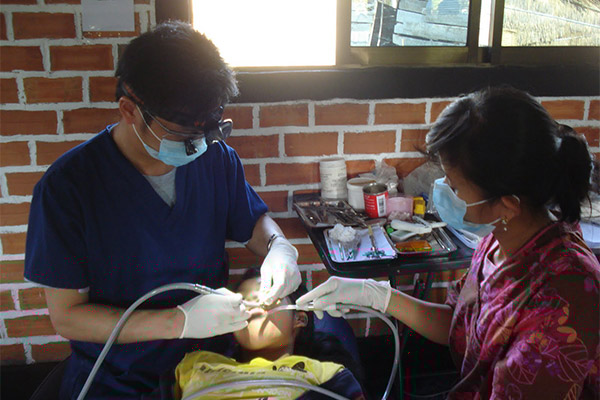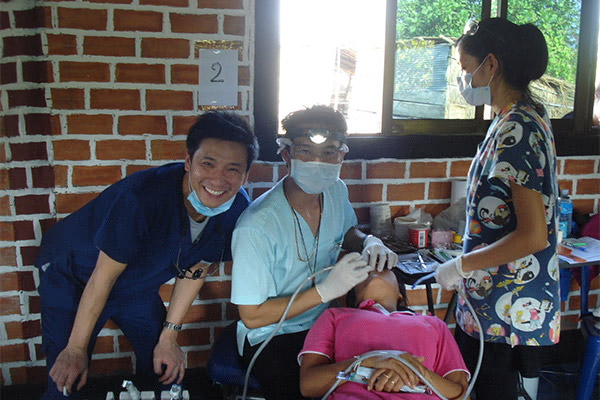Sleep apnea is a common yet often underdiagnosed sleep disorder that can significantly impact one’s quality of life and overall health.
Understanding the symptoms and causes of sleep apnea and knowing how this condition can diagnosed can give you a headstart when it comes to managing this condition. By knowing what sleep apnea is, you will be better equipped to recognize its signs and seek appropriate medical care, ultimately improving your sleep quality and overall well-being.

Sleep apnea is a condition where your breathing repeatedly stops during sleep. This disorder occurs either due to an airway blockage or because the brain fails to regulate breathing properly.
When breathing stops while sleeping, the resulting drop in oxygen levels triggers a survival reflex that briefly awakens you to resume breathing. While this reflex is life-saving, it disrupts your sleep cycle, preventing restful and healthy sleep. This disruption can also strain the heart, potentially leading to serious health risks.
The most common type of sleep apnea, Obstructive Sleep Apnea occurs when the muscles in the back of the throat relax excessively, causing a temporary block in your airway.
Central Sleep Apnea is a comparatively less common type of sleep apnea. It occurs when the brain fails to deliver proper signals to your muscles that control breathing.
Complex sleep apnea syndrome is characterized by a combination of obstructive sleep apnea (OSA) and central sleep apnea (CSA) occurring concurrently or sequentially.
The exact causes of complex sleep apnea are not fully understood but may involve a combination of anatomical, physiological, and neurological factors.
Frequent drops in blood oxygen levels can lead to surges in blood pressure. This puts extra strain on the cardiovascular system, increasing the risk of hypertension. The stress on the heart can also lead to a higher risk of heart attacks, heart failure, strokes, and other cardiovascular problems.
Sleep apnea is associated with insulin resistance, which can lead to type 2 diabetes or worsen its control in those already diagnosed. Poor sleep has also directly been related to the disrupted balance of hormones that control appetite, leading to weight gain and making it more difficult to lose weight.
The frequent awakenings prevent deep, restorative sleep, leading to excessive daytime sleepiness and fatigue. Your poor sleep can have an adverse impact on your memory, concentration, and overall cognitive function, making daily tasks more challenging.
Chronic sleep disruption on a daily basis can contribute to anxiety, depression, and irritability.
The cumulative effects of poor sleep can significantly lower overall quality of life, affecting relationships, work performance, and daily activities.
This test is conducted overnight in a specialized medical facility, often referred to as a sleep lab. It monitors your sleep using sensors that track various physiological parameters such as heart rate, breathing patterns, blood oxygen levels, and brain waves. This comprehensive evaluation is considered the standard method for diagnosing sleep apnea.
Home Sleep Apnea testing allows individuals to perform a sleep study from the comfort of their own homes. Similar to an overnight sleep study, it typically excludes brain wave monitoring.
This testing may not be suitable for diagnosing central sleep apnea and is usually not recommended if severe sleep apnea or other sleep disorders are suspected. In cases where a home study does not indicate sleep apnea, experts often advise confirming the diagnosis with an overnight sleep study.
Sleep apnea is a common disorder that disturbs a person’s breathing during sleep, prompting them to awaken briefly to resume breathing. This interruption disrupts sleep patterns, preventing restfulness.
If left untreated, sleep apnea can lead to severe or potentially life-threatening complications, underscoring the importance of early diagnosis and intervention. With early intervention, including ongoing management and support, individuals can mitigate the risks associated with sleep apnea and achieve better sleep quality and overall well-being.
Contact your dentist or a healthcare provider for the right advice about treating your sleep apnea.
Yes, there is evidence suggesting that untreated sleep apnea can increase the risk of developing diabetes. Sleep apnea may lead to insulin resistance and glucose intolerance due to disrupted sleep patterns and reduced oxygen levels during sleep.
If sleep apnea goes untreated, you may face the following risks:




















Use keywords in the search box below to find what you're looking for.
